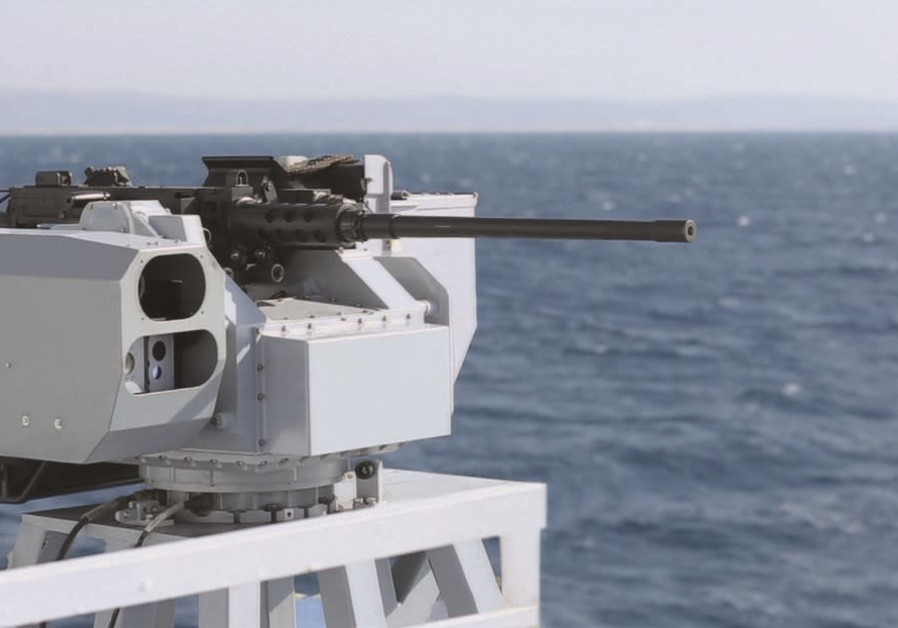Elbit rejects HSBC’s BDS disclaimer stating: ‘We don’t produce cluster bombs’

Remote-controlled naval weapon stations designed by Elbit, September 20, 2018. (photo credit: ELBIT)
Elbit Systems Ltd. does not produce cluster bombs, the Israeli arms company said as it rejected attempts by the international bank HSBC to separate its decision to divest from the company from the Boycott, Divestment and Sanctions campaign that had been waged against the global banking power house.
HSBC’s decision to divest from Elbit last month was first made public in a private email correspondence with the Palestine Solidarity Campaign, a British-based non-governmental organization.
The group, which had waged a stiff campaign against HSBC in hopes of persuading it to divest from Israeli arms company, published news of the divestment decision as a BDS victory.
HSBC’s divestment came in the aftermath of its November acquisition of the Israeli arms company IMI Systems Ltd., formerly known as Israel Military Industries or Ta’as. IMI has a history of producing cluster bombs.
Elbit’s vice president David Vaknin said that the bank had not contacted his company prior to making its decision nor had it been in touch with the company since it divested.
“We have not received any notification in this regard from HSBC nor any inquiry as to the facts concerning the nature of our activity or our policies in this area,” Vaknin said.
“As part of the Elbit Systems organization, IMI Systems will not be continuing its prior activities with respect to cluster munitions. All of Elbit Systems activities relating to munitions, including those activities to be continued by IMI Systems, will be conducted in accordance with applicable international conventions or US law,” Vaknin said.
In addition, he said, “Elbit Systems [itself] is not engaged in the production of cluster munitions.”
HSBC’s divestment decision comes in advance of the anticipated publication of the United Nations Human Rights Council blacklist. This is a data base of companies that allegedly violate international human rights law through their dealings with Israel, primarily including activity over the pre-1967 borders. It is rumored that HSBC could be on the list.
On Wednesday, HSBC wrote to The Jerusalem Post about its divestment decision.
“HSBC’s decision to divest from Elbit Systems was not the result of campaigning by the Boycott, Divestment and Sanctions movement, and it is not indicative of support for the movement’s objectives,” Stuart Levey, HSBC’s chief legal officer and group managing director, wrote to the Post, in response to its Tuesday editorial, “Bad banking.”
“HSBC’s decision was based on our long-standing defense policy whereby we do not invest in companies linked to the production or marketing of cluster munitions. We test our shareholdings against this policy, assisted by an external, evidence-based ratings provider,” he wrote.
“Following a recent acquisition by Elbit Systems, our investment in the company is no longer consistent with our defense policy with respect to cluster munitions, and Elbit Systems joins a number of other companies, including some major US defense contractors, that are impacted by this policy,” Levey explained.
“This development is what prompted HSBC Asset Management to divest its shareholding in the company held in a passively managed fund. That shareholding was valued at approximately $600,000 and represented 0.01% of the total issued share capital of the company,” Levey said.
“HSBC has a banking operation in Tel Aviv and provides banking services to numerous Israeli companies. We have every intention of continuing to do so,” wrote Levey.
Join Jerusalem Post Premium Plus now for just $5 and upgrade your experience with an ads-free website and exclusive content. Click here>>






Comments are closed.